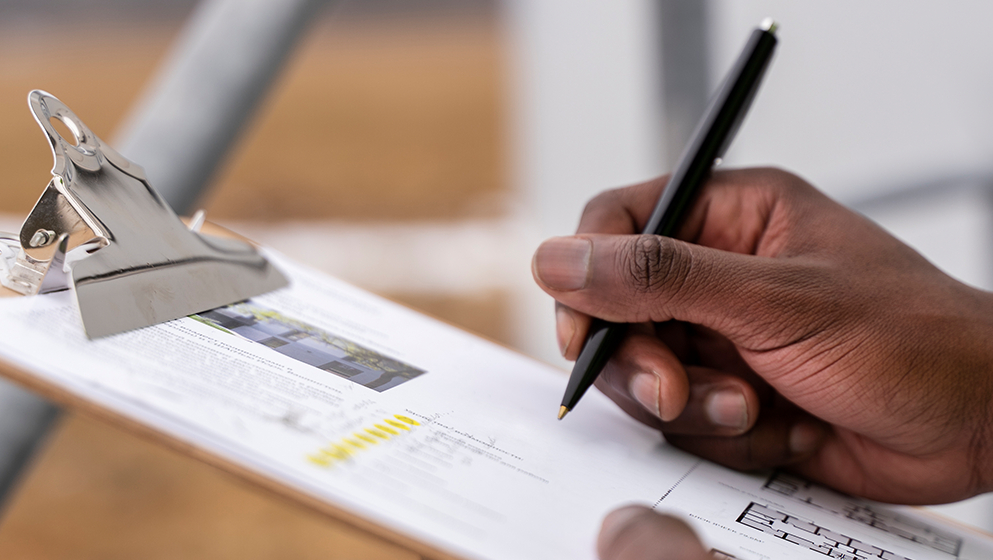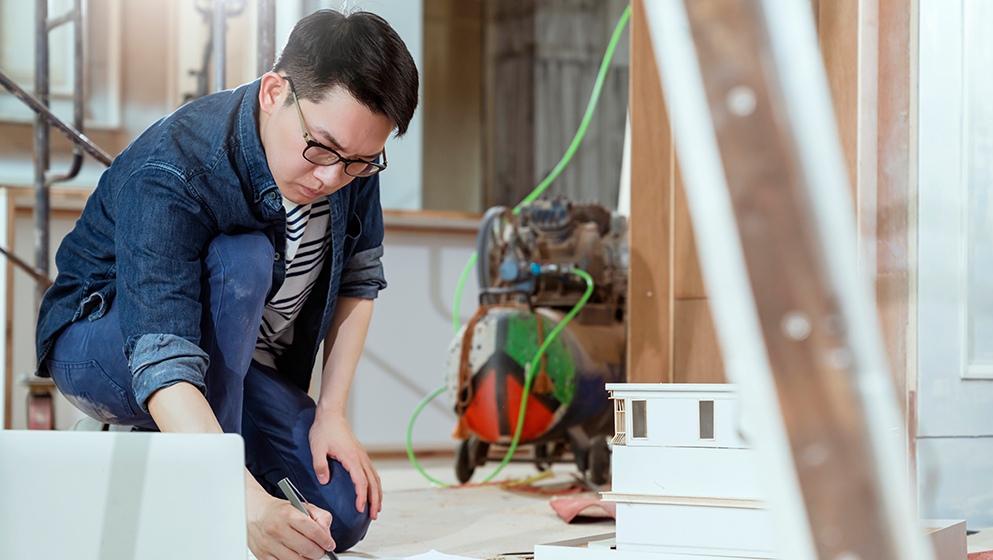The value of a pre-purchase house inspection lies in its ability to provide potential homebuyers with objective and comprehensive information about the property they are considering acquiring. This article aims to explore the significance of this inspection process by highlighting its key benefits. Firstly, a pre-purchase house inspection allows for the identification of potential structural issues, enabling buyers to make informed decisions regarding the property’s long-term stability and safety. Additionally, this inspection helps uncover hidden problems that may not be apparent during a casual viewing, ensuring that buyers are aware of any existing or potential issues that could affect the property’s value or livability. Furthermore, by identifying these problems early on, buyers can potentially save money on costly repairs that may arise in the future. Moreover, a pre-purchase house inspection offers valuable insights into the property, including its overall condition, maintenance requirements, and potential for upgrades or renovations. Lastly, it is important to recognize that a pre-purchase house inspection is an essential step in the home buying process, providing buyers with the necessary information to negotiate a fair price and make an informed decision.
Identify Potential Structural Issues
Identifying potential structural issues during a pre-purchase house inspection is crucial for ensuring the safety and long-term value of the property. It evokes a sense of urgency and concern among potential buyers, as structural stability is of utmost importance. By thoroughly examining the foundation of the house, inspectors can identify any existing or potential foundation problems that may compromise the integrity of the structure.
Structural stability is essential for a house to withstand the test of time. A solid foundation provides the necessary support to the entire building and prevents structural issues such as cracks, settlement, or even collapse. During a pre-purchase house inspection, inspectors carefully examine the foundation for any signs of damage or instability. They may check for cracks in the walls or floors, unevenness in the foundation, or any indications of shifting or settling. These signs can indicate underlying foundation problems that may require significant repairs and can significantly affect the value of the property.
Identifying foundation problems early on allows potential buyers to make informed decisions about the property. If significant foundation issues are detected, buyers can negotiate repairs or reconsider their purchase altogether. Ignoring or overlooking these problems can lead to costly repairs and potential safety hazards in the future.
In addition to structural stability, a pre-purchase house inspection can uncover hidden problems that may not be immediately visible to the untrained eye. By thoroughly examining the property, inspectors can identify issues such as plumbing or electrical problems, pest infestations, or hidden water damage. These hidden problems can be just as detrimental to the value and safety of the property as structural issues, making a comprehensive inspection essential.
In conclusion, identifying potential structural issues, including foundation problems, during a pre-purchase house inspection is crucial. It allows potential buyers to make informed decisions about the property and take necessary steps to address any problems. Additionally, a comprehensive inspection can uncover hidden problems that may affect the long-term value and safety of the property.
Uncover Hidden Problems
Revealing concealed issues, a comprehensive examination of a property before its acquisition can provide prospective buyers with crucial insights into potential problems that may not be readily apparent. By conducting a pre-purchase house inspection, buyers can uncover hidden problems that may have gone unnoticed during initial visits to the property.
One of the key benefits of a pre-purchase inspection is saving time. When buyers are not aware of hidden issues, they may end up wasting time and effort on a property that is not suitable for their needs. For example, a buyer may be interested in a house because of its spacious layout and attractive exterior. However, upon inspection, it may be discovered that the foundation has significant cracks or that the electrical system is outdated and in need of extensive repairs. By uncovering these hidden problems early on, buyers can avoid wasting time pursuing a property that requires substantial work.
Furthermore, a pre-purchase inspection can also help buyers negotiate the price of the property. If hidden issues are uncovered during the inspection, buyers can use this information to their advantage when negotiating with the seller. For instance, if it is discovered that the roof needs immediate replacement or that there is extensive termite damage, buyers can request a lower price to compensate for the cost of necessary repairs. This ability to negotiate based on objective findings can potentially save buyers a significant amount of money.
In conclusion, a pre-purchase house inspection is essential for uncovering hidden problems that may not be readily apparent during initial visits to a property. By conducting such an inspection, buyers can save time by avoiding properties that require extensive repairs and negotiate a fair price based on objective findings. This process sets the stage for the subsequent section, which discusses how a pre-purchase inspection can save buyers money on costly repairs.
Save Money on Costly Repairs
By conducting a thorough examination of a property before its acquisition, potential buyers can uncover hidden problems that could result in substantial savings on costly repairs. This is a cost-effective solution that can potentially save buyers from unexpected financial burdens in the future. A pre-purchase house inspection allows for a comprehensive evaluation of the property’s condition, identifying any underlying issues that may require immediate attention or preventative maintenance.
One of the main advantages of a pre-purchase house inspection is the ability to save money on costly repairs. Hidden problems, such as structural issues, plumbing leaks, electrical faults, or pest infestations, can be uncovered during the inspection process. Addressing these issues before finalizing the purchase can prevent buyers from inheriting significant repair expenses. Moreover, buyers can negotiate the price of the property based on the identified problems, potentially reducing the overall cost of the purchase.
Furthermore, a pre-purchase house inspection promotes preventative maintenance. Identifying minor issues early on allows buyers to address them promptly, preventing them from escalating into major problems in the future. For instance, if a roof inspection reveals minor damage, immediate repairs can prevent water leaks and subsequent structural damage. By investing in preventative maintenance, buyers can save themselves from expensive repairs down the line.
In conclusion, conducting a pre-purchase house inspection is a wise investment for potential buyers. Not only does it provide a cost-effective solution by saving money on costly repairs, but it also promotes preventative maintenance. By addressing hidden problems before finalizing the purchase, buyers can gain valuable insights into the property and make informed decisions about their investment. Transitioning into the subsequent section, these insights can include understanding the property’s overall condition and evaluating its potential for future improvements.
Gain Valuable Insights into the Property
Conducting a thorough examination of a property before acquisition provides potential buyers with valuable insights into the overall condition and potential for future improvements. A pre-purchase house inspection serves as a critical tool for property evaluation, offering numerous benefits that can assist buyers in making informed decisions.
Firstly, a pre-purchase house inspection allows buyers to identify any existing problems or deficiencies within the property. This evaluation encompasses an in-depth assessment of the structural integrity, electrical systems, plumbing, and various other components of the house. By highlighting any areas of concern, buyers can gain a comprehensive understanding of the property’s condition and determine if it aligns with their expectations.
Furthermore, a property inspection also provides buyers with insights into potential future improvements. The inspection report typically includes recommendations for necessary repairs, maintenance, and upgrades. This information is invaluable as it enables buyers to estimate the costs associated with these improvements and factor them into their overall budget. Additionally, understanding the potential for future improvements allows buyers to assess the long-term value of the property and determine if it is a worthwhile investment.
In conclusion, a pre-purchase house inspection offers significant benefits for potential buyers. It assists in identifying existing problems, evaluating the overall condition of the property, and understanding the potential for future improvements. By conducting a thorough examination, buyers can make informed decisions and ensure that the property meets their requirements. Therefore, a pre-purchase house inspection is an essential step in the home buying process.
Essential Step in the Home Buying Process
An essential step in the home buying process is to thoroughly examine the property before acquisition, as it provides valuable insights into the overall condition and potential for future improvements. A pre-purchase house inspection offers potential buyers the opportunity to assess the property’s structural integrity, identify any existing or potential issues, and gain a clear understanding of the property’s value. By conducting an inspection, buyers can make informed decisions and negotiate more effectively.
One of the key benefits of a pre-purchase house inspection is the increased negotiating power it provides. Armed with knowledge about the property’s condition and potential issues, buyers can use this information to their advantage during price negotiations. If significant problems are identified during the inspection, buyers can either negotiate a lower price or request that the seller address the issues before the sale is finalized. This allows buyers to potentially save a significant amount of money or ensure that the property meets their expectations.
Additionally, a thorough inspection provides peace of mind for buyers. By uncovering any hidden issues or potential repairs, buyers can make a more informed decision about whether to proceed with the purchase. This knowledge helps buyers avoid unexpected expenses and future headaches that may arise from undisclosed problems. Knowing the true state of the property can provide a sense of security and confidence in the purchase, ensuring that buyers are making a well-informed investment.
In conclusion, a pre-purchase house inspection is an essential step in the home buying process. It offers buyers valuable insights into the property’s condition and potential for improvements, providing them with increased negotiating power and peace of mind. By investing in a thorough examination of the property, buyers can make informed decisions and protect their investment in the long run.
Conclusion
In conclusion, a pre-purchase house inspection is an essential step in the home buying process. It allows potential buyers to identify potential structural issues and uncover hidden problems that may not be visible during a regular viewing. By conducting such inspections, buyers can save money on costly repairs that may arise after the purchase. Additionally, these inspections provide valuable insights into the property, helping buyers make informed decisions. Overall, a pre-purchase house inspection is a thorough and informative way to assess the value and condition of a property before making a purchase.





